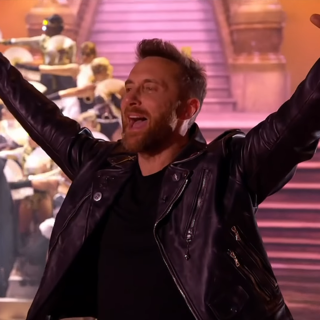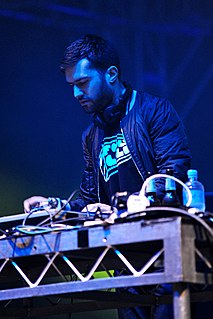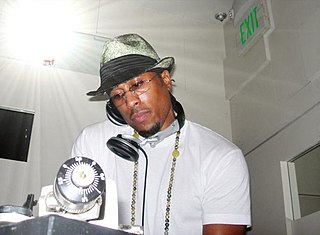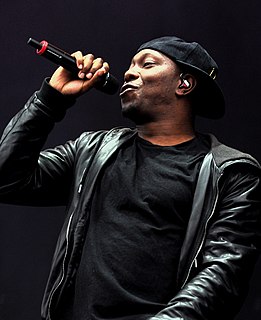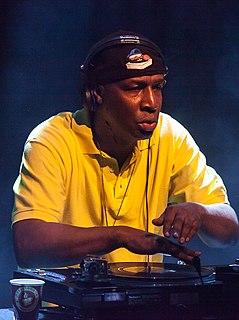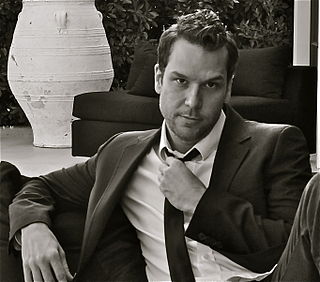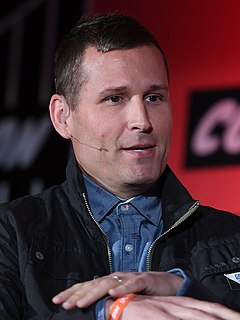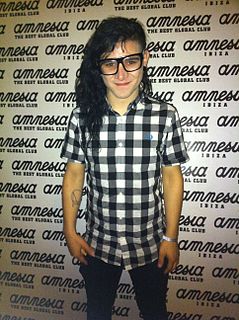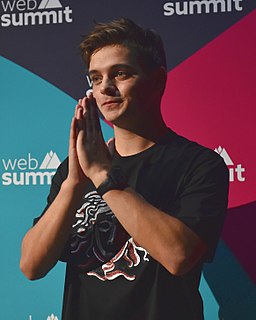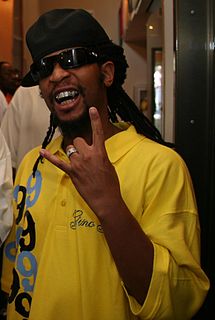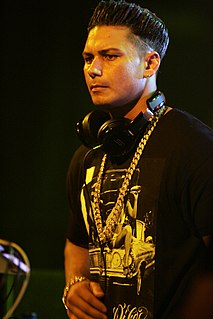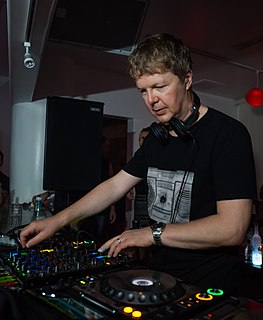A Quote by David Guetta
I started in '88 to play House music, it was a huge revolution for me. I went to London and I saw a DJ on stage and that was crazy at the time. I was one of the really respected and famous DJs in Paris, but they would never show me. I was hidden. A DJ on stage and people dancing and facing the DJ, looking at him? I was like 'wow!'
Related Quotes
When I'm representing my music live I think of it very much in a rock band sense. When I first started doing festivals in the 90s there really weren't other DJs playing the stages I was playing. So I felt I was being afforded an opportunity to kind of make a statement about what DJ music can be live. In the 90s, if you were a DJ you were in the dance tent, and you were playing house music and techno music. There was no such thing as a DJ - a solo DJ - on a stage, after a rock band and before another rock band: that just didn't happen.
The DJ still has the relationship with the people, I believe. I don't know to call the DJ 'the ambassadors' or what, but we still are connecting the dots, getting the good stuff and passing it on to the people. DJs still have relevance, even with the technology that elevates the DJ beyond being a selector.
I've been a DJ since I was about 13, and I started out as a hip-hop DJ. So I was always playing records that would just get people going. I was just doing parties and high school dances and whatever, and then, progressively, I started making my own music, writing little songs here and there, but it was never anything crazy.
I DJ'd for years. I DJ'd in high school, and I think my parents thought it was a passing thing. And then when I was in my second year of college, I was like, 'Yeah, you guys don't need to send me money anymore. My DJ gigs are good enough. I'm selling music; I think I'm gonna have a record deal. I can pay my tuition.'
I've always strived to find those records that people don't know, but they actually go "Wow, what is this?" - and they go crazy to it. To me, that's more rewarding as a DJ, and that's what I always thought a DJ was supposed to do: it's about educating people. Now there seems to be a commercial edge to stuff and people are reacting to stuff they've heard on the radio all day long: to me, that's not what youth culture should be reacting to.
